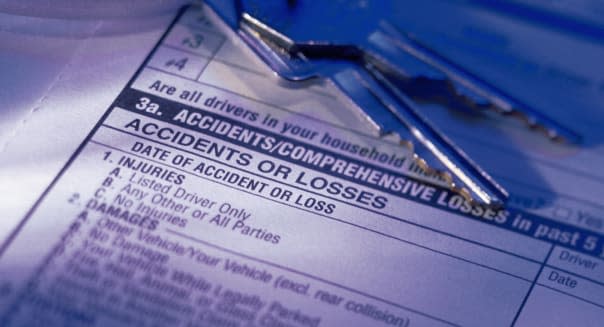Why You Should Let Your Car Insurance Company Ride Shotgun

Tired of paying too much for your car insurance? If so, you're not alone.
According to J.D. Power, car owners got hit with average increases of 35 percent -- $153 -- on their car insurance premiums last year. And that was up from an increase of $113 in 2012.
As rates reach for the sky, more car owners are reaching out for options to control their costs. And according to consumer financial website NerdWallet, one option you should look hard at this year is usage-based, or "pay-as-you-go" car insurance.
The 411 on Usage-Based Insurance
Usage-based insurance is a relatively recent innovation. The National Association of Insurance Commissioners describes it as a way to align the premiums that drivers pay with the amount and manner they drive, "making premium pricing more individualized and precise."
The basic idea is that the less you drive, the less chance your car will be damaged while driving -- and so the less you should pay to insure against the risk of such damage. Similarly, the better you drive -- e.g., by driving "gently," obeying the speed limit, and neither accelerating nor braking too precipitously -- the less you should be charged.
The question is how to prove to an insurance company that you drive little enough, and well enough, to deserve a discount. And the answer to this question is telematics.
Big Insurer is Watching You
Telematics refers to new advances in technology that permit an insurer to monitor how a driver drives. It basically boils down to you, the driver, permitting your insurer to install a GPS monitoring device in your car that records how the vehicle is driven over a period of time.
%VIRTUAL-article-sponsoredlinks%GPS technology has the ability to track both how far a car travels over time and how fast the it's being driven. By comparing these two data points, GPS telematics can also tell how quickly a driver accelerates and brakes.
All of this can give an insurer a good picture of how aggressively or carefully the car is being driven, allowing the insurer to better calibrate how "risky" it is to insure the driver.
What's in It for You?
NAIC thinks that within the next five years, enough insurers will offer telematics to have 20 percent of cars on American highways covered under usage-based insurance plans. But why would you want to participate?
To be blunt, if you're a bad driver with a lead foot and a need for speed, you probably won't want to have anything to do with telematics. But for good drivers, it could be a great way to reduce the cost of car insurance.
FC Business Intelligence, which runs an informational website on telematics, estimates that good drivers buying insurance from Progressive (PGR), for example, can save as much as 30 percent by installing the company's Snapshot telematics device in their cars, and providing data to Progressive on the number of miles they drive, how often they drive late at night, and similar information. Progressive provides the Snapshot device free to policyholders.
Drivers insured by State Farm could save even more. The Telematics Update website suggests that discounts based on the driver (age, occupation and place of residence) and data from the company's Drive Safe & Save telematics program can add up to as much as 50 percent off base insurance rates.
Mind the Fine Print
Not all usage-based insurance programs are created equal, so pay attention to the details before signing up.
State Farm, for example, offers its UBI program in partnership with General Motors' (GM) OnStar service, and with Ford's (F) Sync. But if you don't subscribe to either, you'll need to subscribe to a third service, called "In-Drive" -- and pay a $7 monthly fee for use of its telematics device. The first year of the service is free -- but after that first year, fees could eat into any savings on your insurance premium.
That is, assuming you drive gently enough to receive any savings at all.
Motley Fool contributing writer Rich Smith has no position in any stocks mentioned. The Motley Fool recommends Ford, General Motors, and Progressive. The Motley Fool owns shares of Ford.

